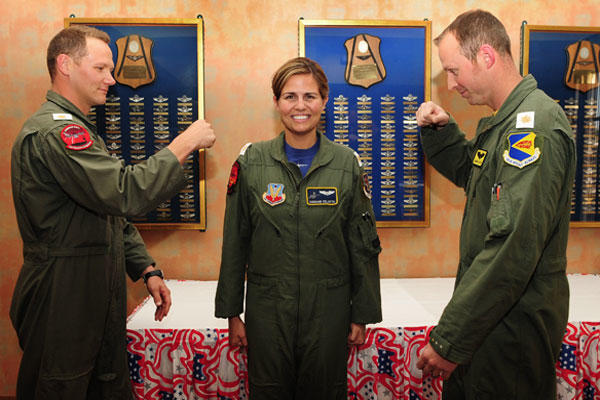Air Force leaders delayed the promotion board for captains in the 2005 year group by several months because of historically high retention rates combined with legal limits on the total number of officers, service officials announced Tuesday.
Captains who earned their commission in 2005 will have to wait until at least July 2014 before their promotion board convenes, said Lt. Col. Emi Izawa, chief of the Military Force Policy Division. The originally scheduled date was December 2013.
Izawa said the Air Force personnel office is constantly monitoring retention and attrition rates in order to tell when promotion boards will convene. The delay will not affect judge advocates, chaplains or health profession officers.
Izawa said the board delay for the 2005 year group could last as long a year, pushing it back to December 2014. The 2014 Selection Board Schedule will be released in the summer of 2013.
Each military service has a limit on the number of majors, lieutenant colonels and colonels it can carry, which is mandated by the Defense Officer Personnel Management Act. If the Air Force continued to promote at its current rate, the service would surpass that ceiling, Izawa said.
Delaying the promotion board means thousands of captains will have to wait on the pay raise that comes with a promotion to major. Pay is dictated by grade and time in service meaning it can differ for officers in the same year group.
A captain promoted to major with over eight years in service stands to earn a $5,751.72 raise under the 2013 pay chart. A captain with over 10 years in service is due an $8,673.36 raise upon pinning on major.
“We understand this could inconvenience some officers,” Izawa said.
Lt. Gen. Darrell Jones, Air Force deputy chief of staff for Manpower, Personnel, and Services, said the defense spending cuts played no role in the decision to delay the promotion board. This is not a move motivated to cut costs, Air Force officials said.
Air Force captains in the 2005 year group expressed concern that this delay could hurt their careers. Izawa and Jones emphasized it would not.
Since officers compete against their year group for promotions, the fact this will affect the entire year group means these officers will not face a disadvantage when competing for promotions, Izawa said.
However, their records will reflect that they spent five, and in some cases six, years as a captain when competing for command positions or assignments.
Izawa said the delay of the 2005 year group’s major’s board does not necessarily mean their promotion board to lieutenant colonel will also be delayed. She also said the delay of the 2005 year group’s board does not mean the 2006 year group’s promotion board would also be delayed.
“Below the zone” promotions will not be affected by the delay for the 2005 year group, Izawa said. Captains in that year group questioned if the date for “below the zone” promotions to lieutenant colonel would shift from 2017 back to 2018. Izawa said that was not necessarily the case.
Officers and enlisted have to wait to pin on their new rank after they find out they have earned a promotion to make sure the services don’t go over the allotted number of slots allotted for each rank. Personnel officials monitor attrition and rates to measure when a service member can pin on.
The length of time it has taken for an officer to pin on a new rank has continually gotten longer in the Air Force. Congress and the Defense Department expect it not to last much longer than ten months. Many officers have to wait up to 18 months, Izawa said.
“We need to get that under control,” she said. “The delay will allow us to have a board with a predictable pin on.”
Air Force officials said they chose to announce the delay of the promotion board Tuesday in order not to surprise those affected by the ruling and to give them time to prepare.





























